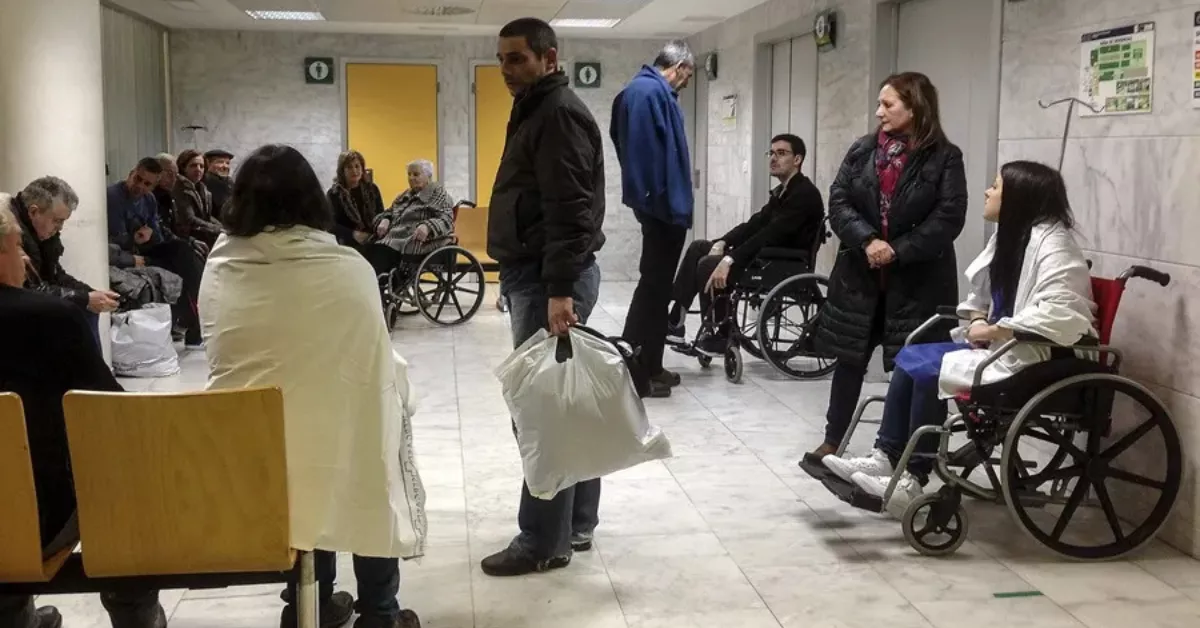
If getting an appointment for a Primary Care doctor is complicated on a day-to-day basis, in the summer, it turns into a Hunger Games scenario.
The public healthcare system in the Canary Islands faces a structural problem every summer: health centres and hospitals are overwhelmed due to a lack of sufficient staff to cover holidays and the increase in the population due to tourism.
Elena Pérez, a family doctor and spokesperson for the Association of Primary Care Doctors of the Canary Islands (AMAPCAM), explains that from the 30 patients a day stipulated per doctor, during the summer months they see up to 50 or more.
Situations like these lead healthcare professionals to request an increase in staffing, among other claims.
Pérez explains that during the summer, emergencies are easily overwhelmed, and many primary care consultations, due to the lack of substitutes, are forced to reorganise by doubling shifts; that is, “one colleague takes two shifts, seeing their own patients and those of the doctor who has no substitute.”
However, “as a last resort, consultations are closed, and patients are rescheduled,” she adds.
Beyond the patients with appointments, “in centres that do not have emergency services, family doctors and paediatricians have to see both the scheduled patients and those who come in without appointments,” which means the workload for these professionals skyrockets: “We see the scheduled patients, those who come in without appointments, and in many centres, the number of patients per day far exceeds the 30 agreed upon in the +AP strategy. When we double up, we can see 50 patients or more in a shift.”
The spokesperson also points out that computer systems like Drago, which frequently fail and are slow, exacerbate the problem.
In addition to the lack of professionals to cover holidays, the effect intensifies in tourist areas due to the floating population multiplying in summer, according to Levy Cabrera, general secretary of the Medical Union in the Canary Islands.
For example, “municipalities like Candelaria or Los Cristianos in Tenerife can triple their population.”
As a result, “accidents increase, digestive problems arise, and chronic illnesses like hypertension or diabetes become unmanageable in older tourists,” he adds.
Alongside the health centres, hospitals also suffer from this saturation. Cabrera reiterates that, although it is announced as an achievement that no beds will be closed this summer, “in reality, there are already not enough beds to meet current needs.”
He explains that around 600 people continue occupying hospital beds due to the lack of social care places where they can be sent.
The pressure on healthcare services also impacts waiting lists, the union warns.
The overload in emergencies and the limitation of staff during holiday months slow down scheduled activities, complicating any plans to reduce surgical or diagnostic delays.
In summary, the usual problems faced by the SCS are exacerbated during this time of year. This is why both the Medical Union and AMAPCAM demand that staffing levels be adjusted to meet the actual needs of the Canary Islands, with 30% more staff in many services.
Additionally, they urge the reinforcement of health centres that have become too small—whether by expanding or building new ones—and ensuring job stability.
“If you don’t plan in April or May to hire reinforcements in June, you end up in summer without enough staff to care for a population that has tripled,” Cabrera summarises.













